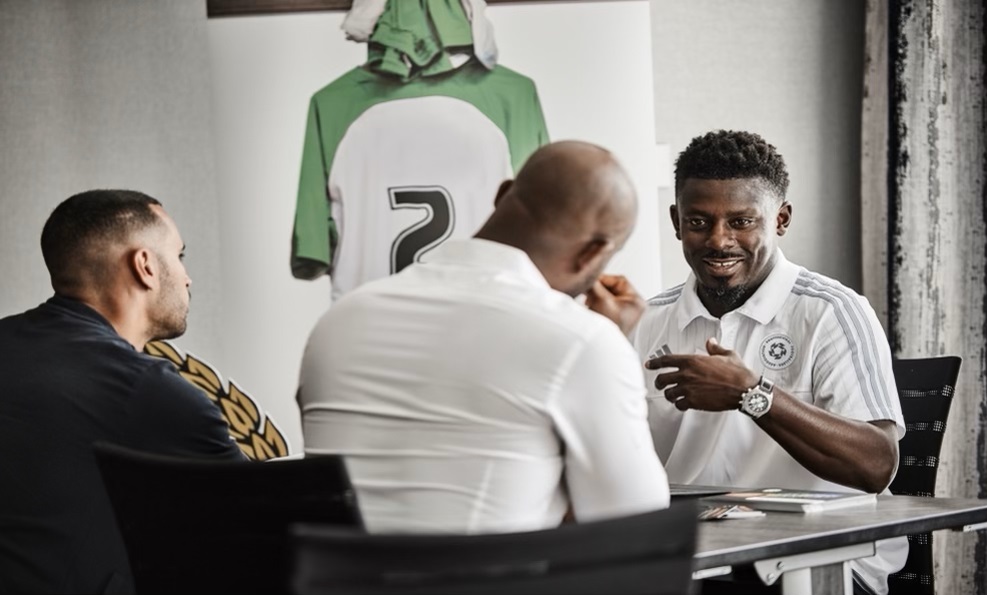


The PPF Wellbeing Committee was formed in 2018, initially chaired by the PJA’s Chief Executive who was then succeeded by the PFA’s Director of Player Wellbeing Dr Michael Bennett in 2022. The Committee meets twice a year and is another example of player association members benefitting from each other’s experience and knowledge to improve the services and support they provide to members. In this Committee Focus we look at the world leading Wellbeing services the PFA offer and the broad range of work that player associations do in supporting players with their emotional wellbeing.
Michael Bennett played as a professional footballer for 20 years but faced issues with long term injuries, demands and pressure and the change in management at clubs. He was on a constant emotional rollercoaster but due to the lack of support he ended his career never fulfilling his potential but knowing he wanted to help others. With a psychotherapy qualification under his belt, he originally joined the PFA in an Education Advisor role before establishing the PFA Wellbeing Department from scratch when it became clear that this service was missing for players.
Starting out in 2011 with no model to follow, he set up a network of regional counsellors to support players with a range of different issues. As well as establishing a 24/7 helpline, he has developed a programme of Wellbeing Workshops delivered across the Leagues and tailored to players at different stages of their professional journey.
With an original network of 8 therapists in 2012, the PFA now have access to over 270+ therapists each with specialist skills which can be tailored to individuals and the presenting issues they are facing. These range from players dealing with long-term injury, selection and work relationship worries to body image, eating disorders or sexuality concerns as well as common problems of depression, anxiety and stress.
By sharing best practice and comparing different funding or staffing models, the player associations are able to learn from each other and maximise the support they offer to players. At each stage of a player’s career they are facing different challenges and using former players who have lived experiences means players are more likely to relate to what they’re saying and feel more relaxed about asking for help.
Funding and staffing remain a recurring theme in player association discussions about wellbeing support however the committee comes together to help others see what can be done with limited resources.
Mandating Player Care
Even with the resources that football has, the PFA still aren’t able to deliver workshops every season at all the League clubs and WSL teams so the possibility of mandating wellbeing support would put the onus on governing bodies to then provide the requisite funding.
Prioritising Player Care at Clubs
Governing bodies and clubs have a duty of care in relation to players and of course the player care teams who support players. Player Care staff have a big impact and if they’re not performing at their peak then players are losing out and are not able to perform at their peak.
Protecting against Online Abuse
Cases of online abuse are going up across sport so player associations are looking at ways in which they can collaborate with reporting and the PFA will be relaunching the specific helpline for players so they speak directly with therapists who are trained to deal with victims of online abuse
Gaining Player Data
Gaining feedback from players is vital in moving this area of support further. It’s important to assess how education is being delivered and how players’ emotional wellbeing is at different stages of their career. By developing this information across sport, player associations are in a stronger position to ask for additional funding.
Every player is different and facing their own unique challenges but some of the key ‘industry hazards’ identified in the PFA’s wellbeing workshops are:
16-18 year olds: Living away from home, adapting to a host house, expressing yourself in a foreign language, adapting to transition from part-time to full-time
21-23 year olds: Finances, having more money and the issues which come with that – more time, addictive behaviour, relationships, forging a career, going out on loan, being away from family.
First team players: Constant demands of getting 3 points whether that’s title chasing teams or ones avoiding relegation, team selections, manager relationships, injuries, career transition.
Educating Player Care Teams
The PFA are looking to implement a Player Care Conference later this year focusing on player care and liaison staff. By understanding what these key members of staff and the pressures they’re under will in turn benefit the players and help identify the key support required.